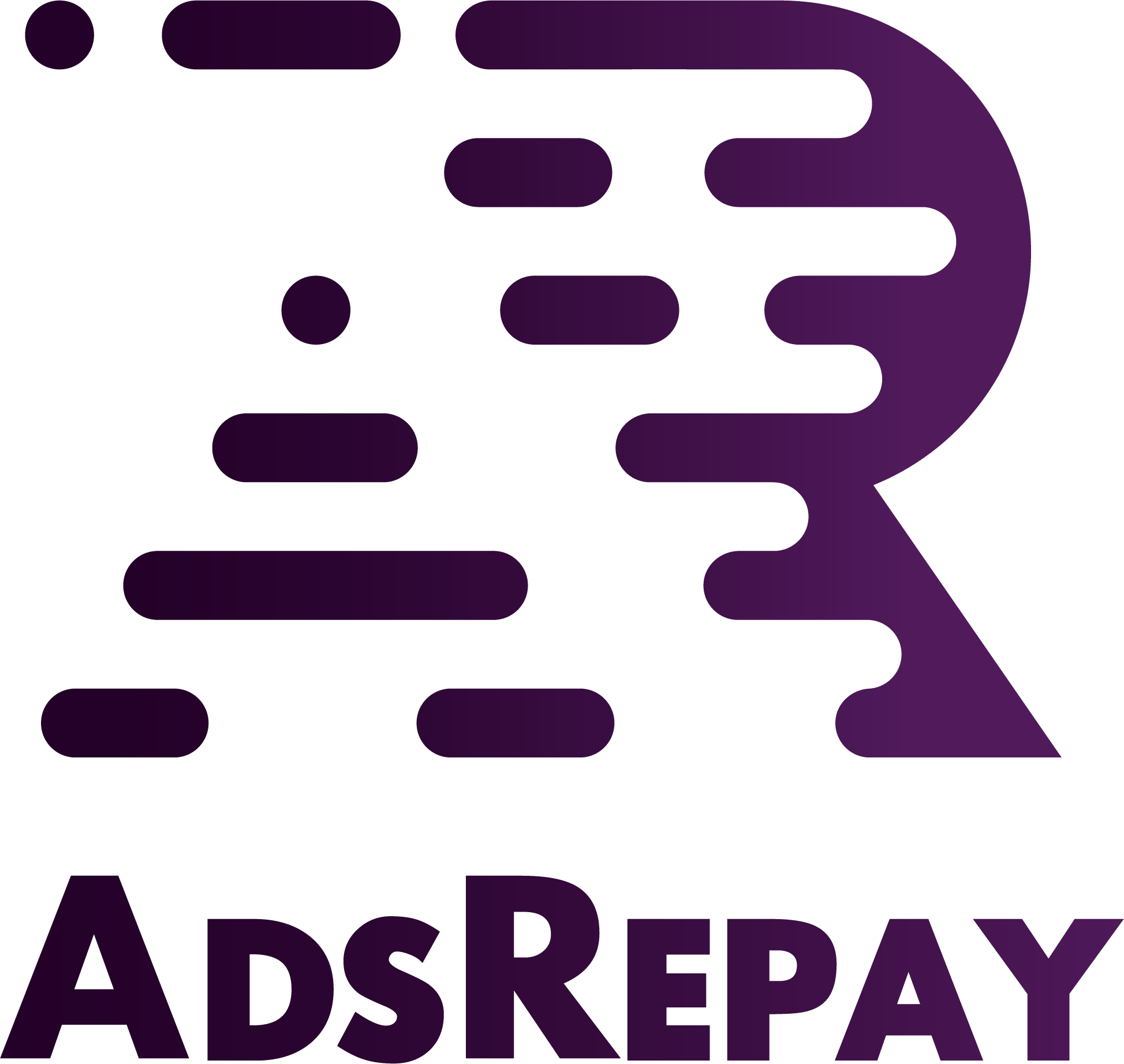If you’re a blogger looking to monetize your content and make money online, WordPress provides an excellent platform with a plethora of opportunities. In this comprehensive guide, we’ll explore 30 proven ways to monetize your WordPress blog and turn it into a profitable venture. From affiliate marketing and advertising to selling products and services, we’ll cover various strategies, along with detailed explanations and examples for each.
Advertisement – If you are looking to start earning money online for FREE! – Click here to watch a 50-second video

Tip: If you need extra cash to fund your blog project you can earn a free side hustle with adsrepay.com
Monetize Your Blog Content
- Make Money With WordPress Affiliate Marketing
- Display Google AdSense on WordPress
- Use a WordPress Advertising Plugin to Sell Ads Directly
- Sell Sponsored Blog Posts
- Get Paid to Write Reviews
- Earn Money by Flipping Websites
- Get Public Speaking Gigs as an Influencer
Create a Paid Membership Website
- Create Restricted Members-Only Content
- Create a Private Forum
- Make a Questions & Answers Website
Create a Directory Website With WordPress
- Create a WordPress Job Board With Paid Submissions
- Create a Paid Business Directory
- Create a WordPress Event Calendar With Paid Submissions
Sell Digital Products With WordPress
- Sell Ebooks on WordPress
- Sell Online Courses
- Host a Paid Webinar
Sell Services Online Using WordPress
- Offer Freelance Services
- Start Your Own Consulting Business
- Become a Coach
Sell Physical Products Online Using WordPress
- Start an ECommerce Business With WooCommerce
- Create an Online T-shirt Store With WordPress
- Create a WooCommerce Dropshipping Store
- Create an Amazon Affiliate WordPress Shop
Offer Platform as a Service
- Create an Online Marketplace Website
- Make an Auctions Website
- Create a Job Marketplace website
Become a WordPress Designer or Developer
- Develop WordPress Plugins
- Sell WordPress Themes
- Sell Graphics on Your WordPress Site
Donations
- Accept Donations

Advertisement – If you are looking to start earning money online for FREE! – Click here to watch a 50-second video
Monetize Your Blog Content:
Monetizing your blog content is the foundation of making money online. By creating valuable and engaging content, you can attract a loyal audience and explore various monetization avenues. Consider the following methods:
→ Make Money With WordPress Affiliate Marketing:
Affiliate marketing involves promoting products or services and earning a commission for each sale or action. Join affiliate programs, such as Amazon Associates or ClickBank, and include affiliate links in your blog posts. When readers make a purchase through your links, you earn a commission. Example: A fashion blogger promotes a clothing brand and earns a commission for every sale made through their affiliate link.
→ Display Google AdSense on WordPress:
Google AdSense allows you to display contextual ads on your WordPress blog. When visitors click on these ads, you earn a certain amount of money. Set up an AdSense account, generate ad code, and place it strategically on your blog. Example: A travel blogger includes AdSense ads in the sidebar and between paragraphs of their blog posts.
→ Use a WordPress Advertising Plugin to Sell Ads Directly:
Instead of relying on ad networks, you can sell ad space directly to advertisers using WordPress advertising plugins like AdSanity or Advanced Ads. Set your own ad rates, create ad zones, and negotiate deals with advertisers. Example: A technology blog offers ad space in the header and footer sections, charging a monthly fee for banner ads.
→ Sell Sponsored Blog Posts:
Partner with brands and businesses to create sponsored blog posts. Write content that promotes their products or services and charge a fee for featuring them on your blog. Clearly disclose that it’s a sponsored post to maintain transparency with your audience. Example: A food blogger collaborates with a kitchen appliance brand and writes a sponsored post featuring their new blender.
→ Get Paid to Write Reviews:
Leverage your influence by writing honest product or service reviews and getting paid for them. Brands may approach you to review their offerings, or you can pitch to companies relevant to your niche. Maintain authenticity and disclose any sponsored reviews to your audience. Example: A tech blogger receives payment to review the latest smartphone model and shares their unbiased opinion.
→ Earn Money by Flipping Websites:
If you have web development and design skills, consider flipping websites for profit. Build or acquire websites, improve their design and content, and sell them at a higher price. Research market trends and target niches with high demand. Example: A blogger purchases a niche website, adds quality content, improves SEO, and sells it to a buyer looking to enter that niche market.
→ Get Public Speaking Gigs as an Influencer:
As your blog gains recognition, you can leverage your expertise to secure public speaking engagements. Speak at conferences, seminars, or workshops in your niche, sharing your insights and experiences. Earn money through speaking fees or by promoting your products or services during these events. Example: A finance blogger becomes a sought-after speaker at financial planning conferences, charging a fee for each speaking engagement.
→ Create a Paid Membership Website:
Offer exclusive content or services to members who pay a recurring fee. Create a membership site using plugins like MemberPress or Restrict Content Pro. Provide premium content, online courses, access to a community, or personalized coaching. Example: A photography blogger creates a paid membership site where members gain access to premium tutorials, photo editing tools, and monthly live Q&A sessions with the blogger.
Create Restricted Members Only Content:
Encourage visitors to become paying members by offering exclusive content to those who subscribe. Use plugins like Restrict Content or Paid Memberships Pro to restrict access to certain articles, videos, or resources. Example: A fitness blogger offers in-depth workout routines and meal plans exclusively to paying members.
Create a Private Forum:
Build a community around your blog by creating a private forum for your audience. Charge a membership fee or offer premium features within the forum to monetize it. Use plugins like bbPress or BuddyPress to create a forum integrated with your WordPress site. Example: A gaming blogger establishes a private forum where gamers can connect, share tips, and access exclusive game guides for a monthly fee.
Make a Questions & Answers Website:
Create a platform where users can ask questions and receive expert answers. Monetize it by charging a fee for users to ask questions or by offering premium memberships with additional benefits. Plugins like WP Q&A or CM Answers can help you set up a question-and-answer website. Example: A gardening blogger creates a Q&A website where users can ask gardening-related questions and pays a small fee for expert advice from experienced gardeners.
Create a Directory Website With WordPress:
Build a directory website where businesses can list their services or products. Charge a fee for businesses to be featured or offer premium listing options with enhanced visibility. Utilize plugins like GeoDirectory or Business Directory Plugin to create a directory site. Example: A travel blogger develops a directory website that lists local tour operators, hotels, and restaurants, charging businesses for premium listings and exposure.
Create a WordPress Job Board With Paid Submissions:
If your blog focuses on a specific industry or niche, you can create a job board where companies can post job listings. Charge a fee for each job submission or offer premium packages for added benefits like featured listings. Use plugins like WP Job Manager or Jobify to create a job board on your WordPress site. Example: A technology blogger establishes a job board for IT professionals, charging companies a fee to post job openings and connecting job seekers with relevant opportunities.
Create a Paid Business Directory:
Similar to a regular directory, create a business directory specifically for a certain industry or location. Charge businesses to be listed and offer premium features like highlighted listings or additional information. Plugins like Business Directory Plugin or Sabai Directory can assist in building a paid business directory. Example: A pet blogger develops a paid business directory for local pet groomers, trainers, and pet supply stores, offering premium listings for greater visibility and customer engagement.
Create a WordPress Event Calendar With Paid Submissions:
Build an event calendar where event organizers can submit their upcoming events. Charge a fee for event submissions, or offer premium features like event promotion or featured listings. Plugins like The Events Calendar or EventON can help you create a paid event calendar. Example: A lifestyle blogger creates an event calendar for local fitness classes, workshops, and wellness retreats, charging a fee for event organizers to list their events and reach a wider audience.
Sell Digital Products With WordPress:
If you have expertise in a particular field, consider creating and selling digital products. These can include e-books, online courses, templates, or software tools. Use plugins like Easy Digital Downloads or WooCommerce to set up a digital storefront on your WordPress site. Example: A cooking blogger develops an online course teaching advanced culinary techniques and sells it to aspiring chefs and cooking enthusiasts.
Sell Ebooks on WordPress:
Write and publish your own e-books and sell them directly on your WordPress site. Create compelling covers, format your content, and use plugins like Easy Digital Downloads or WooCommerce to handle the sales and delivery process. Set a price for your e-book and provide secure download links to customers upon purchase. Example: A personal finance blogger writes an e-book on budgeting and financial planning and sells it directly on their WordPress blog, offering practical tips and strategies for managing money effectively.
Sell Online Courses:
If you have expertise in a specific subject, create and sell online courses to share your knowledge with others. Use plugins like LearnDash or Teachable to build interactive and engaging courses. Include video lessons, quizzes, and assignments to provide a comprehensive learning experience. Example: A photography blogger creates an online course on mastering landscape photography techniques, offering step-by-step lessons and personalized feedback to students.
Host a Paid Webinar:
Organize live webinars on topics that resonate with your audience and charge attendees a fee to participate. Deliver valuable content, engage with participants through Q&A sessions, and offer exclusive bonuses or resources. Use platforms like Zoom or GoToWebinar to host your paid webinars. Example: A marketing blogger hosts a paid webinar on effective social media marketing strategies, providing attendees with practical tips and case studies to enhance their marketing efforts.
Sell Services Online Using WordPress:
If you possess skills that can be offered as services, leverage your blog to attract clients and generate income. Market your services through dedicated service pages, clear pricing structures, and compelling testimonials. Example: A graphic design blogger offers logo design, branding, and illustration services to businesses, showcasing their portfolio and providing a straightforward pricing list on their WordPress site.
Offer Freelance Services:
Use your blog to showcase your expertise and attract freelance clients. Highlight your skills, past projects, and testimonials to establish credibility. Utilize platforms like Upwork or Freelancer to find freelance opportunities and connect with potential clients. Example: A writing blogger offers freelance writing services, pitching to clients through online platforms and showcasing their writing samples on their WordPress site.
Start Your Own Consulting Business:
Leverage your knowledge and experience to offer consulting services in your niche. Create dedicated consulting service pages on your blog, outlining the benefits and outcomes of your consulting sessions. Use plugins like WPForms or Contact Form 7 to create contact forms for potential clients to reach out to you. Example: A business strategy blogger offers one-on-one consulting sessions to entrepreneurs, providing tailored guidance and strategies for business growth.
Become a Coach:
If you have expertise in personal development, fitness, or any other area, consider becoming a coach. Offer coaching services through your blog, providing personalized guidance and support to clients. Set up a coaching program with specific goals, sessions, and pricing tiers. Example: A health and wellness blogger becomes a certified fitness coach, offering personalized workout plans, nutritional guidance, and regular coaching calls to help clients achieve their fitness goals.
Sell Physical Products Online Using WordPress:
If you have a physical product to sell, WordPress can serve as an excellent platform for your e-commerce business. Set up an online store using plugins like WooCommerce or Shopify, and showcase your products with appealing product descriptions and high-quality images. Example: A fashion blogger launches their own clothing line and sells their designs directly on their WordPress-powered online store, offering a seamless shopping experience to customers.
Start an E-Commerce Business With WooCommerce:
Utilize the power of WooCommerce, a popular WordPress plugin, to create an e-commerce store selling a variety of products. Set up product categories, implement secure payment gateways, and optimize your store for a user-friendly experience. Example: A home decor blogger curates a collection of unique home accessories, furniture, and decor items, offering them for sale through their WooCommerce-powered e-commerce store.
Create an Online T-shirt Store With WordPress:
Tap into the popularity of custom-designed T-shirts by creating your own online T-shirt store using WordPress. Use plugins like WooCommerce or Printful to handle printing, fulfillment, and shipping. Design unique T-shirt graphics and offer a variety of sizes and styles to cater to different preferences. Example: An art blogger creates a T-shirt store featuring their original artwork and sells them to their audience, allowing customers to wear their favorite art pieces.
Create a WooCommerce Dropshipping Store:
Utilize the dropshipping business model to sell products online without the need for inventory management. Set up a WooCommerce store and integrate it with dropshipping platforms like AliExpress or Oberlo. When a customer places an order, the product is shipped directly from the supplier to the customer. Example: A tech gadget blogger builds a dropshipping store featuring the latest gadgets and electronics, offering a wide range of products without the hassle of stocking inventory.
Create an Amazon Affiliate WordPress Shop:
Leverage the vast product selection and reputation of Amazon by creating an Amazon affiliate shop. Sign up for the Amazon Associates program, select products relevant to your niche, and promote them on your WordPress blog with affiliate links. Earn a commission for each sale made through your affiliate links. Example: A book blogger creates an Amazon affiliate shop, curating book recommendations and linking them to the corresponding Amazon product pages.
Offer Platform as a Service:
Build a platform that provides value to users and charge a fee for its usage. This can include services like project management tools, content creation platforms, or marketing automation software. Develop a user-friendly interface and implement features that solve specific problems for your target audience. Example: A productivity blogger creates a platform as a service, offering an all-in-one project management tool tailored for remote teams, charging a subscription fee based on the number of users.
Create an Online Marketplace Website:
Build an online marketplace where buyers and sellers can connect and transact. Charge a commission or listing fees for each transaction made on your platform. Utilize plugins like WooCommerce or Easy Digital Downloads with additional marketplace extensions. Example: A handmade crafts blogger establishes an online marketplace for artisans to sell their handmade products, earning a percentage of each sale made on the platform.
Make an Auctions Website:
Develop an auction website where users can bid on items and sell their own products through auctions. Charge listing fees or take a percentage of each successful auction sale. Use plugins like WP Auctions or Ultimate Auction to create the auction functionality on your WordPress site. Example: A collectibles blogger creates an online auctions website, allowing users to bid on rare collectible items like vintage comic books or memorabilia, earning a commission from successful auctions.
Create a Job Marketplace Website:
Build a job marketplace where employers can post job listings and job seekers can apply for positions. Charge a fee for job listings, featured listings, or premium access to job seekers. Use plugins like WP Job Manager or Jobify to create a job marketplace on your WordPress site. Example: A career advice blogger creates a job marketplace website focused on remote job opportunities, charging companies to post remote job listings and offering subscription packages for job seekers seeking exclusive access to curated job openings.
Become a WordPress Designer or Developer:
If you have web development or design skills, offer your services to clients who need assistance with their WordPress websites. Create a portfolio showcasing your work, offer custom design or development packages, and promote your services on your blog. Example: A tech tutorial blogger becomes a freelance WordPress developer, helping clients build and customize their WordPress websites according to their specific needs.
Develop WordPress Plugins:
If you’re experienced in programming and have a deep understanding of WordPress, consider developing and selling WordPress plugins. Identify common pain points or needs in the WordPress community and create plugins to solve those problems. Sell your plugins on platforms like CodeCanyon or through your own website. Provide documentation, support, and regular updates to ensure the success and satisfaction of your plugin users. Example: A coding tutorial blogger develops a plugin that enhances the SEO capabilities of WordPress websites and sells it on their own website, catering to website owners who want to improve their search engine rankings.
Sell WordPress Themes:
Design and develop visually appealing and functional WordPress themes and sell them to website owners. Create themes for specific niches or offer versatile themes that can be customized for various industries. Sell your themes on marketplaces like ThemeForest or through your own website. Example: A design and inspiration blogger creates a collection of minimalist WordPress themes targeted at creative professionals and sells them on a dedicated theme shop.
Sell Graphics on Your WordPress Site:
If you have design skills, create and sell graphic resources like icons, illustrations, or templates. Create a dedicated shop page on your WordPress blog to showcase and sell your graphic assets. Use plugins like WooCommerce or Easy Digital Downloads to handle the transaction process. Example: A graphic design blogger designs a set of social media icon packs and sells them on their WordPress site, providing different file formats and customization options.
Accept Donations:
If your blog provides valuable content and readers want to support your work, provide an option for them to make donations. Use plugins like GiveWP or PayPal Donate to integrate donation buttons or forms on your WordPress site. Express gratitude to donors and consider offering exclusive perks or benefits to those who donate. Example: A nonprofit and charity blogger accepts donations to support their cause and provide resources to underprivileged communities, offering transparency on how the donations are utilized.
In the ever-expanding digital landscape, WordPress continues to serve as a powerful platform for bloggers to monetize their content and generate income online. With the 30 proven ways to make money listed above, bloggers can tap into a wide range of strategies and opportunities to turn their WordPress blogs into profitable ventures.
From affiliate marketing and advertising to selling products and services, each method offers unique potential for generating revenue. By leveraging these strategies, bloggers can not only earn income but also establish their expertise, build a loyal audience, and contribute to their chosen industry or niche.
It’s important to note that success in monetizing a WordPress blog requires dedication, persistence, and a thorough understanding of your target audience. Continuously providing valuable, high-quality content is the foundation for attracting and retaining readers. Moreover, actively engaging with your audience, building a strong brand, and promoting your blog through various marketing channels are crucial steps in maximizing your blog’s earning potential.
While each monetization method has its own nuances, examples, and intricacies, the key is to find the right combination that aligns with your blog’s niche, audience, and expertise. Experimentation and adaptation are key as you identify which strategies work best for your specific goals and target market.
Furthermore, remember that building a successful blog takes time. It’s important to be patient, consistent, and willing to adapt your strategies based on feedback and trends. As you gain experience and refine your approach, your earning potential will grow, and you’ll gain a deeper understanding of your blog’s revenue streams.
In conclusion, WordPress provides bloggers with endless opportunities to monetize their content and make money online. By exploring the various methods listed in this guide, bloggers can transform their passion into a profitable business. Embrace the strategies that resonate with your blog’s niche and audience, and stay committed to delivering valuable content. With dedication, perseverance, and a strategic approach, you can build a thriving WordPress blog that not only generates income but also fulfills your aspirations as a content creator.
Learn more ways to earn online – Watch the video below, and subscribe to the channel for weekly updates on new and verified ways to make money online.




